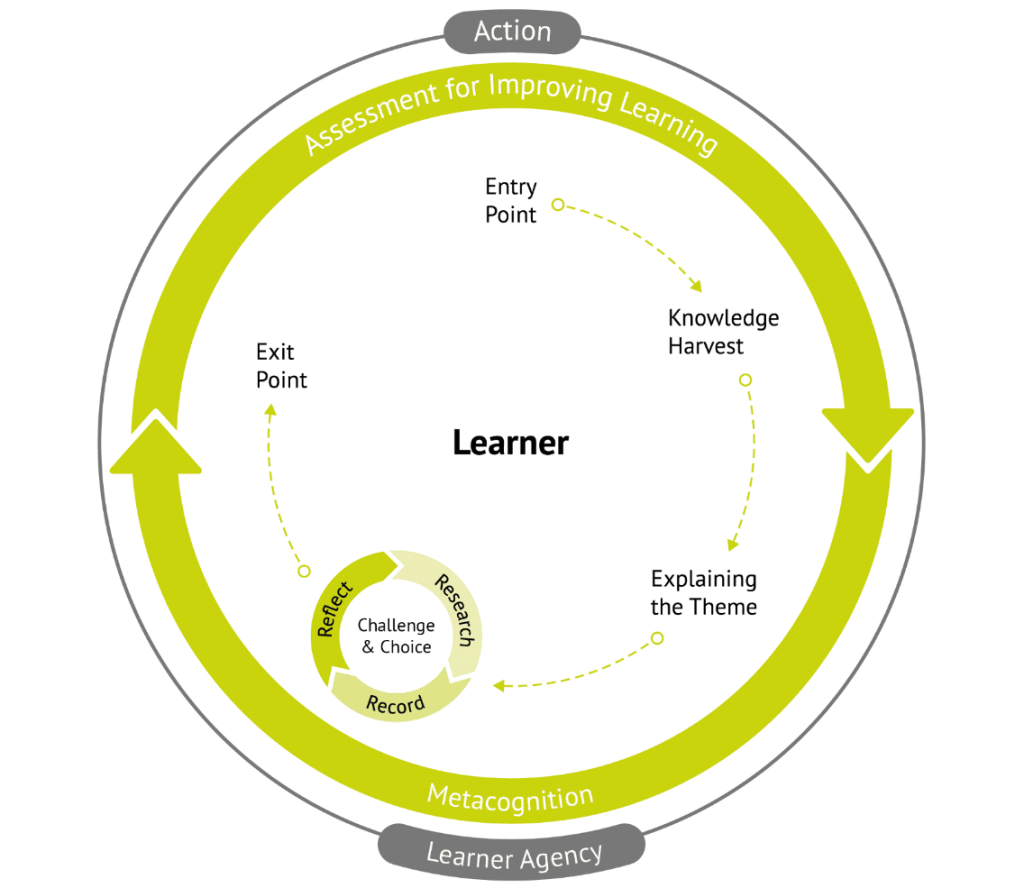Primary school: IPC
The award-winning International Primary Curriculum (IPC) takes a comprehensive approach to learning, offering a structured curriculum built around Subject, Personal, and International Learning Goals. Through this approach, students develop Knowledge, Skills, and Understanding across a wide range of relevant, diverse, and inclusive thematic units.
IPC Learning Outcomes
The IPC Learning Goals are divided into three key areas—Knowledge, Skills, and Understanding—designed to guide students throughout their primary education years. At ISTCI, students are assessed at the end of each milepost, at ages 7, 9, and 11. These assessments cover subjects including Language Arts, Mathematics, Science, Art, Health & Wellbeing, Geography, History, Technology, Music and Physical Education.
The International Learning Goals play a central role in developing international mindedness and global competence. Every IPC thematic unit includes International Tasks aimed at fostering national, international, and intercultural perspectives. These tasks encourage learners to engage with the world around them, empowering them to take action and make a difference.
IPC process to facilitate learning
At ISTCI, all IPC units follow the Process to Facilitate Learning, which places the learner at the centre and ensures that each child's learning experience is engaging and effective. This process is structured around five key stages, all connected through Assessment for Improving Learning, Self-Assessment, and Action.
- Entry Point
Each unit begins with an engaging activity designed to spark interest, prompt recall of prior knowledge, and create excitement for the new learning journey. - Knowledge Harvest
This stage allows children to share what they already know about the unit’s theme. It helps teachers tailor and differentiate lessons to meet the needs of each student. - Explaining the Theme
The unit’s progression is outlined for students, helping them link their existing knowledge to the upcoming learning, fostering deeper connections and understanding. - Research, Record, & Reflect
Students engage in tasks that involve researching new information, recording their findings, and reflecting on their learning to develop knowledge, skills, and understanding. - Exit Point
At the end of each unit, the Exit Point brings students together to celebrate and showcase what they have learned, providing a meaningful conclusion to their thematic study.

Benefits of the IPC
The International Primary Curriculum offers several key advantages over other primary school curricula, helping children thrive in their education:
- The IPC is tailored to meet each child’s individual learning needs, taking into account their interests and level of understanding.
- It is flexible and can be adapted to meet local curriculum requirements, while integrating creatively with other curricula.
- Studying the IPC at ISTCI connects students to an international network of schools, teachers, and learners. Through the Global Campus, students can collaborate and share ideas with peers around the world.
- The IPC’s assessment system focuses on improving learning outcomes, using Key Skills rubrics to track progress.
- The curriculum promotes collaboration at all levels, including between teachers and students, peers, and colleagues, as well as within the wider ICA and ISTCI communities.
What We Offer
Our skilled and dedicated teachers nurture these qualities while providing a challenging and rewarding education. Children studying the IPC go on to achieve success in higher education and find their place in an increasingly globaliSed world.
Our unique "home, host, heritage and adopted countries" strategy embraces local cultures and customs, helping students open doors to global opportunities. To deepen their connection to the IPC units, students participate in field trips throughout the year, enhancing their Knowledge, Skills, and Understanding in a practical, real-world context.
Globally Competent Learners
IPC learners are encouraged to develop an interest in their own and other cultures as they start to understand multiple perspectives.
By inspiring children to be internationally minded, they are more likely to develop a passion for their local and global communities.
Terminology to support the development of globally competent learners includes the use of the following throughout the IPC thematic units:
| HOME | HOST | HERITAGE | ADOPTED |
| The country where the child may have been born and/or has cultural roots. | Where the child is living now, where the school is located. | The countries where the child's family originates from. | Countries that enhance learning by allowing for comparison to the home/host/heritage country. |

